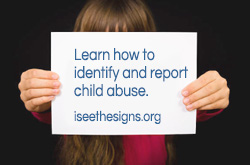Child Protection Accountability Commission (CPAC)

History and Statutory Mission
Delaware's Child Protection Accountability Commission ("CPAC" or "the Commission") was statutorily created in 1997 as part of a comprehensive strategy, entitled the Child Abuse Prevention Act of 1997, to improve Delaware's child protection system following the tragic death of a four year old boy named Bryan Martin. This act made significant changes regarding how Delaware investigates child abuse and neglect and how it fosters a child protection community of cooperation, accountability and multi-disciplinary collaboration. See 16 Del. C., Ch. 9. CPAC's overall statutory mission is to monitor Delaware's child protection system to ensure the health, safety, and well-being of Delaware's abused, neglected, and dependent children. 16 Del. C. § 931(b). The statutory duties of the Commission are as follows:
(1) Examine and evaluate the policies, procedures, and effectiveness of the child protection system and make recommendations for changes therein, focusing specifically on the respective roles in the child protection system of the Division of Family Services, the Division of Prevention and Behavioral Health Services, the Office of the Attorney General, the Family Court, the medical community, and law-enforcement agencies.
(2) Recommend changes in the policies and procedures for investigating and overseeing the welfare of abused, neglected, and dependent children.
(3) Advocate for legislation and make legislative recommendations to the Governor and General Assembly.
(4) Access, develop, and provide quality training to the Division of Family Services, Deputy Attorneys General, Family Court, law-enforcement officers, the medical community, educators, day-care providers, and others on child protection issues.
(5) Review and make recommendations concerning the well-being of Delaware's abused, neglected, and dependent children including issues relating to foster care, adoption, mental health services, victim services, education, rehabilitation, substance abuse, and independent living.
(6) Provide the following reports to the Governor:
- An annual summary of the Commission's work and recommendations, including work of the Office of the Child Advocate, with copies thereof sent to the General Assembly.
- A quarterly written report of the Commission's activities and findings, in the form of minutes, made available also to the General Assembly and the public.
(7) Investigate and review deaths or near deaths of abused or neglected children solely for the purposes provided in § 932 of this title.
(8) Coordinate with the Child Death Review Commission to provide statistics and other necessary information to the Child Death Review Commission related to the Commission's investigation and review of deaths of abused or neglected children.
(9) Meet annually with the Child Death Review Commission to jointly discuss any findings or recommendations released to the public from reviews conducted under § 932 of this title. This meeting shall be open to the public.
(10) Adopt rules or regulations for the administration of its duties or this subchapter, as it deems necessary.
When CPAC began its work in 1997, its primary focus was on the caseloads of child protection workers, and the resulting turnover and inexperience of workers that compromised child safety. The Commission lobbied hard for the caseload standards and career ladders for workers, as well as partnered with the Department of Services for Children, Youth and Their Families ("Children's Department" or "DSCYF") for the creation of an overhire pool. The Commission also focused on building partnerships among law enforcement, prosecutors, and the Division of Family Services ("DFS") to improve outcomes for Delaware's children. In February of 2000, after the creation of the Office of the Child Advocate, staffing for the Commission was put in place. In 2001, the Commission's membership and statutory duties were expanded to include a focus on well-being of children in the child protection system. Finally, in April of 2004, DFS asked CPAC to serve as Delaware's federally required Citizen Review Panel under the Child Abuse Prevention and Treatment Act. CPAC assumed that responsibility in July of 2004. As such, CPAC now plays an even greater role in reviewing the child protection system's discharge of its responsibilities to Delaware's children.
Carrying Out CPAC's Statutory Mission
With CPAC’s assistance, Delaware has continued to refine and improve its interdisciplinary approach to the protection of children. The approach, often referred to as the multidisciplinary team (MDT), relies on the collaborative intervention of various system partners. An essential participant in the MDT approach has been the Department of Services for Children, Youth and Their Families (DSCYF or the Children’s Department), which is comprised of three service divisions - the Division of Prevention and Behavioral Health Services (DPBHS), the Division of Youth Rehabilitative Services (DYRS), and the Division of Family Services (DFS). Collectively these divisions are responsible for the provision of services to children who have suffered abuse, neglect, abandonment, delinquency, mental illness, and/or substance abuse. As the child welfare agency, DFS is responsible for receiving and investigating reports alleging child abuse, neglect, or dependency. These cases are often initiated when a child victim of abuse or neglect is first identified by a professional who interacts routinely with children, including members of the education, medical or law enforcement communities.
Multidisciplinary collaboration is frequently necessary. For reports that may involve a crime against a child, DFS and law enforcement will investigate jointly. Whenever appropriate, cases will be referred to the Children’s Advocacy Center of Delaware (CAC), where the MDT often formally convenes to conduct a forensic interview, medical examination or mental health screening. Death and near death cases are also referred to CPAC for an investigation and review. In an effort to ensure system wide coordination, all cases involving serious physical injury and death or allegations of sexual abuse are also monitored by Delaware’s Investigation Coordinator - a function that CPAC advocated for in the wake of the tragic events brought to light in the Bradley case. As a vital member of the MDT, the Criminal Division of the Department of Justice (DOJ) determines whether there is sufficient evidence to prosecute those responsible for inflicting harm on children. In July of 2013, at the recommendation of a joint committee of CPAC and CDRC, the DOJ established the Child Victims Unit. In 2016, that Unit was expanded to handle all felony level, criminal child abuse cases involving the death or serious physical injury of a child, as well as all sexual abuse cases. It was renamed the Special Victims Unit. The Unit combines expertise from both the Criminal and Family Divisions of the DOJ. The Family Division also provides legal representation to DSCYF in Family Court, and DOJ has designated several attorneys across its Divisions to pursue civil remedies against perpetrators of child abuse, including civil substantiations and licensure proceedings, thereby increasing the chances of protecting children where criminal remedies are either insufficient or unavailable.
Through frequent hearings, Family Court Judges are responsible for monitoring the children in the legal custody of DSCYF. These same children are entitled to representation in all judicial proceedings, which OCA is responsible for providing. OCA accomplishes its charge to represent children through the employment of four full-time Deputy Child Advocates (DCAs), contract Child Attorneys, a substantial and dedicated pool of volunteer Child Attorneys supervised by a Managing Attorney, and a robust and committed pool of community volunteers that serve as Court Appointed Special Advocates and are supervised by CASA Coordinators. Children in DSCYF custody also receive extensive care and support from the education, foster care, adoption and medical communities. Thus, Delaware relies on the collective resources of the Family Court, DOJ, OCA and CASA, as well as the Children’s Department, the service providers, and the community, to provide safety, wellbeing and permanency for its most vulnerable children.
As an accountability commission, CPAC is charged with gathering and acting on information to ensure all components of the child protection system are meeting the challenges presented by the children being served by Delaware's system. This multidisciplinary system has made great strides since the creation of CPAC in 1997; however, CPAC serves to ensure that those strides continue, as well as to address new issues that arise in this multi-faceted system. CPAC carries out its statutory mission by, among other things:
- Providing a public forum for the sharing of information and concerns about Delaware's child protection system;
- Examining policies, procedures, statistical data, agency reports and other relevant information regarding the functioning of Delaware's child protection system;
- Advocating for changes to policies and procedures where appropriate;
- Supporting initiatives of child protection system partners;
- Pursuing legislative initiatives;
- Planning and participating in trainings and other opportunities for multi-disciplinary communication and education;
- Working with system partners to gather additional relevant data illustrating the performance of Delaware's child protection system, and acting on the information obtained to improve outcomes for children; and
- Reviewing individual cases of child abuse or neglect and issuing recommendations resulting from those reviews.
Bylaws
Child Protection Accountability Commission Bylaws
Wilmington
900 King Street
Suite 350
Wilmington, DE 19801
Main line: (302) 255-1730
Fax: (302) 577-6831
Dover
400 Court Street
Dover, DE 19901
Fax: (302) 672-1125
Georgetown
100 East Market Street
Suite 3100
Georgetown, DE 19947
Main line: (302) 856-5720
Fax: (302) 677-7027




